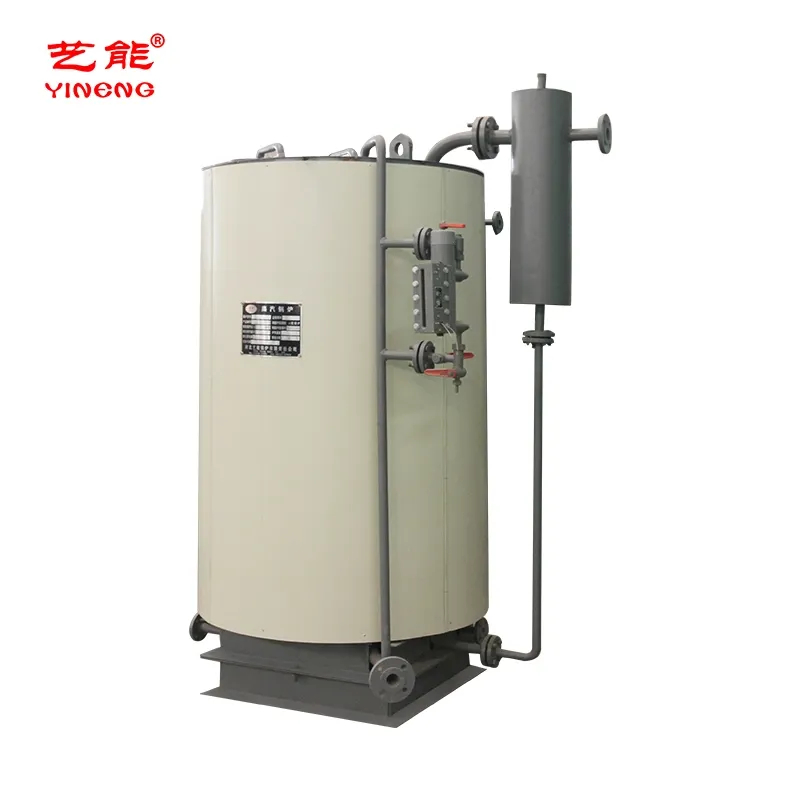Jan . 25, 2025 05:30
Back to list
LSS vertical gas or diesel fired steam boiler
Gas-fired industrial boilers play a critical role in numerous manufacturing and processing facilities due to their efficiency and reliable energy output. These units are integral to industries ranging from food processing to metal fabrication, providing essential steam or hot water that drives various production processes. As the demand for energy-efficient and environmentally sensitive solutions grows, gas-fired boilers have become more advanced and widely adopted, positioning them as a key player in sustainable industrial operations.
Safety remains a paramount concern in industrial environments, and gas-fired boilers incorporate several safety features to mitigate risks. Modern systems are equipped with automated shutdown mechanisms that activate in response to failures or unsafe operating conditions, such as sudden pressure spikes or gas leaks. Regular inspections and adherence to maintenance protocols are essential, and many suppliers offer comprehensive service packages to ensure continued safe operation. Additionally, the infrastructure for natural gas supply is well-developed in many regions, further adding to the appeal of gas-fired boilers. The consistent supply of natural gas ensures reliable boiler operation, which is critical for processes that require uninterrupted service. Furthermore, partnerships with local suppliers often provide competitive pricing models and supply agreements that help industries manage the cost of production more effectively. For companies seeking to transition toward greener operations, gas-fired industrial boilers align well with sustainability goals. As the energy sector progresses, there are increasing opportunities to integrate these boilers with renewable energy sources such as biogas, further diminishing the carbon footprint of industrial activities. Investing in units that are compatible with newer, cleaner energy forms can future-proof industrial facilities in a rapidly evolving environmental landscape. In conclusion, gas-fired industrial boilers are a cornerstone in the advancement of energy-efficient industrial operations. Their combination of efficiency, reliability, flexibility, and safety represents a mature technology that meets the stringent demands of contemporary industrial applications. Industries prioritizing lower operational costs and reduced environmental impact will find these boilers a crucial asset, enabling them to enhance productivity while supporting sustainable practices.


Safety remains a paramount concern in industrial environments, and gas-fired boilers incorporate several safety features to mitigate risks. Modern systems are equipped with automated shutdown mechanisms that activate in response to failures or unsafe operating conditions, such as sudden pressure spikes or gas leaks. Regular inspections and adherence to maintenance protocols are essential, and many suppliers offer comprehensive service packages to ensure continued safe operation. Additionally, the infrastructure for natural gas supply is well-developed in many regions, further adding to the appeal of gas-fired boilers. The consistent supply of natural gas ensures reliable boiler operation, which is critical for processes that require uninterrupted service. Furthermore, partnerships with local suppliers often provide competitive pricing models and supply agreements that help industries manage the cost of production more effectively. For companies seeking to transition toward greener operations, gas-fired industrial boilers align well with sustainability goals. As the energy sector progresses, there are increasing opportunities to integrate these boilers with renewable energy sources such as biogas, further diminishing the carbon footprint of industrial activities. Investing in units that are compatible with newer, cleaner energy forms can future-proof industrial facilities in a rapidly evolving environmental landscape. In conclusion, gas-fired industrial boilers are a cornerstone in the advancement of energy-efficient industrial operations. Their combination of efficiency, reliability, flexibility, and safety represents a mature technology that meets the stringent demands of contemporary industrial applications. Industries prioritizing lower operational costs and reduced environmental impact will find these boilers a crucial asset, enabling them to enhance productivity while supporting sustainable practices.
Latest news
-
Top Industrial Boiler Contractors Supplier & Factory Quality Products & ServicesNewsJun.10,2025
-
Panasonic Hot Water Boiler - Reliable & Energy Efficient Heating SolutionNewsJun.10,2025
-
Pennco Steam Boilers High-Efficiency & Durable SolutionsNewsJun.10,2025
-
Industrial Boiler & Mechanical Solutions Efficient Industrial Heating SystemsNewsJun.10,2025
-
Panasonic Hot Water Boiler - Energy-Efficient, Reliable Heat SolutionNewsJun.10,2025
-
Premium Power Plant Steam Boilers High Efficiency & ReliabilityNewsJun.09,2025

